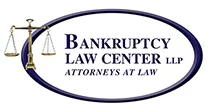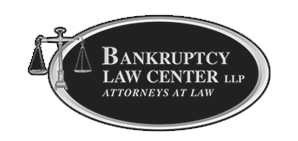Bankruptcy makes it possible for you to eliminate the legal obligation to pay most or all of your debts. This is called a “discharge” of debts. It is designed to give you a fresh financial start. It can stop foreclosure on your house and allow you an opportunity to catch up on missed payments. Bankruptcy also prevents repossession of your vehicle, stops wage garnishments, debt collection, harassment, and restores or prevents termination of utility service.
The basic idea in a Chapter 7 bankruptcy is to wipe out (discharge) your debts, such as credit cards, medical bills, and past-due utility bills. It is a highly effective way to improve your financial situation and obtain a fresh start. If you want to keep property like a home or vehicle you will be allowed to do so, but you must continue to pay any loans associated with them. If you are behind on mortgage or car payments and want to keep the home or car, Chapter 7 may not be the right choice for you. Chapter 7 bankruptcy does not eliminate the right of lienholders to repossess or foreclose if you fall behind on payments.
A Chapter 13 bankruptcy is a reorganization of your debt. The most important thing about a Chapter 13 is that it will allow you to keep valuable property, such as your home and car, which might otherwise be lost if you were behind on your payments. In a Chapter 13, you will file a “plan” showing how you will pay off some of your past-due and current debts over three to five years. It will allow you to catch up on past-due amounts on your secured property (home and vehicles). It also will allow you to pay back your unsecured creditors (credit cards and medical debt) with no interest and at an amount you can afford. This amount is often only pennies on the dollar. If you have high credit card debt or are behind on mortgage or car payments, a Chapter 13 can provide a highly effective solution for you.
YES! Many people believe they cannot own anything for a period of time after filing for bankruptcy. This is not true. You can keep your exempt property and anything you obtain after the bankruptcy is filed. However, if you receive an inheritance, a property settlement, or life insurance benefits within 180 days after filing for bankruptcy, that money or property may have to be paid to your creditors if the property or money is not exempt.
Yes, and we will be there with you. In most cases, you only have to go to a proceeding called the “meeting of creditors” to meet with the bankruptcy trustee and any creditor who chooses to come. Generally, creditors do NOT show up at this meeting. The Bankruptcy Law Center, LLP prepares your schedules accurately and clearly so the meeting is as simple as possible. You will be asked a few questions about your bankruptcy forms and your financial situation to ensure everything filed is true and correct.
There is no clear answer to this question. Unfortunately, if you are behind on your bills, your credit may already be bad. Bankruptcy will probably not make things any worse. Since bankruptcy wipes out your old debts, you are likely to be in a better position to pay your current bills, and if your credit score has dropped it should recover quickly.
Utility Services: Public utilities, such as the electric company, cannot refuse or cut off your services because you have filed for bankruptcy. However, they can require a deposit for future service, and you do have to pay bills that arise after the bankruptcy is filed. Discrimination: An employer or government agency cannot discriminate against you because you have filed for bankruptcy. Driver’s license: If you lost your license solely because you couldn’t pay court-ordered damages caused by an accident, bankruptcy will allow you to get your license back. Co-signers: If someone has co-signed a loan with you and you file for bankruptcy, the co-signer may have to pay your debt. If you file a Chapter 13, you may be able to protect co-signers, depending upon the terms of your Chapter 13 plan

